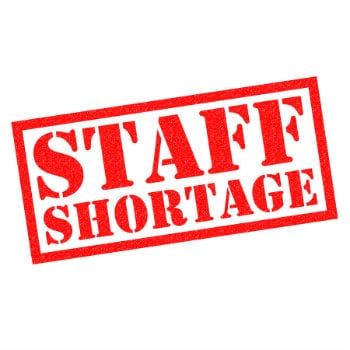Why Can’t We Recruit & Retain Foster Parents
I have over 40 years of experience working in child welfare trying to help public and private non-profit providers doing foster care, residential, adoptions and family preservation become more successful in helping the youth that come to their attention get the services they need and to learn the knowledge, skills and tools they need to be successful citizens when they exit the system.
Even before Covid there has been a plea for more foster parents. Since we are not growing our pool of foster homes with good retention, we need to ask why.
As our child welfare system has moved to family preservation first, if possible, then placement with family members as the desired second placement option, then the remaining system of foster care, group homes and residential has experienced a shift in the difficulty of the population they serve.
At the same time there have been child welfare influencers who have loudly advocated that group homes are glorified foster homes and that residential care is “bad” These influencers are wrong. The problem is not the setting but lack of clarity as to their purpose. The same is true for foster care.
For some youth the intimacy of living in a foster family setting is too difficult. These youth don’t have the need for a residential facility with an on-grounds school as they can benefit from a community group living facility and participate in the public school.
Likewise for some youth who are preparing to emancipate from care the group home, if designed right, is a step towards independence.
For teen moms and their babies, a group home where mom and baby live together is often better than in a foster family setting where the foster mom thinks she is foster mom to the adolescent and to the baby and doesn’t know her role is to help the adolescent mom be a successful parent rather than foster mom being the substitute parent to their baby.
Residential, if it understands it purpose and it operates to fulfill that purpose have a critical place in the child welfare continuum of care. (see last month’s Leading for more on residential)
Youth who have been traumatized need therapeutic intervention before placement in a family setting, especially if the family setting is where the trauma occurred (which is almost always).
What we see today is youth coming into residential with multiple failed foster home placements. This is the child welfare system failing those youth. The current model for placement in residential is multiple failed placements in foster care. In 3 programs where they recently tracked the number of previous failed placements it averaged 8 – 12 prior foster care placements. That says the system is the problem.
The role of residential should be to (1) identify what executive functioning skills the youth need to be able to live successfully in a family setting and teach those missing executive functioning skills and (2) ready the youth to live successfully in a family and be successful in a public school setting.
That means the residential program is a teaching, not control and compliance. It is a teaching program with a trauma recovery therapeutic focus.
That brings us to foster parents and foster care.
The current national foster parent training programs do not prepare foster parents to be successful with today’s youth coming into their home.
All the national precertification programs use the same message framework:
Most children in foster care have been abused or neglected. Foster families provide children in foster care with a safe, nurturing home.
What I see is foster parents today are unprepared to deal with today’s incoming youth who lack emotional regulation and impulse control, to name but 2 of the executive functioning skills they lack. Executive functioning skills can by taught/learned. You also need to know what to do when the youth display a lack of the skill. Punishing someone for not having a skill does not teach them that skill. That too is a skill that is not taught to foster parents in precertification training.
The national training programs all recently added a module on trauma to let foster parents know the youth coming in their home has been traumatized. Great knowledge but you must ask “so what?”. If a youth coming into a foster home has been traumatized what does that mean to come into another family setting like the one that they experienced the trauma in?
What behaviors might the foster parent see and what is the appropriate way to address that trauma? It’s more than knowledge, it’s also skills.
The proof this is true is the number of foster parents calling their foster care worker asking “what do I do” or saying “get this child out of my home”
Both messages are the same if you listen behind the words. They are saying I am unprepared to work with this youth – I do not have the knowledge, skills and tools I need.
This is not the foster parent’s fault, it is the fault of the agency that does not understand its job is to identify and provide the knowledge, skills and tools foster parents need to be successful with the youth that come into their care.
I will give you one example. When youth in care get emotionally escalated the foster parent needs to know how to de-escalate and then post-event how to debrief so the event becomes an opportunity for teaching emotional regulation. De-escalation is an essential skill new foster parents must learn and be expected to use.
Foster parents are quitting because they don’t feel they have the knowledge, skills and tools they need to be successful foster parents.
That problem starts with foster parents not understanding what their role is with a new child coming into their home.
In its simplest form, children who have not been living successfully in their former family setting will need to be taught how to successfully live in a different family setting. That is the goal of a foster parent – to teach a child how to live in a family setting that is not abusive or neglectful.
It’s more than providing a safe and nurturing home but to teach a child how to successfully live in a family setting.
And our primary source of new foster parents is our existing foster parents. But when our existing foster parents tell us they are unprepared, and the agency’s foster care workers are punitive, judgmental, bossy and/or quick to blame it’s no surprise that foster parents are leaving service at an increasing rate.
I have develop a parallel practice training for foster care workers that uses the same principles as Supervision for Success so that foster care workers , who are in fact supervising foster parents, know how to work with them in a success focus just as we want those foster parents to work with the foster children in their home in the same success, non-punitive, focus.
And at the same time the reputation of the agency and experience of its foster parents are known in the community which turns others off from becoming foster parents.
This is what parallel practice tells us is required.
Foster parents consistently report the agency they work with is punitive focused and not supportive (success) focused. Our foster care agencies and workers need to learn that their job is to help foster parents be successful in their role of teaching a youth in care how to successfully live in a family setting so they can successfully discharge to a permanent family setting.
Foster parents have for decades been telling us (their agencies public and private) that they are unprepared for the youth coming into their home.
It’s the agencies who have not listened.
Until both public and private foster care agencies become willing to change how they prepare and support foster parents the shortage will continue.
If your agency wants to improve their success in retaining foster parents and achieving improved results for the children/youth in their care, then contact me to learn about Supervision for Success and Success-focused Foster Care. Each is a 3-day training done over 3 months with your foster care staff and leadership and a one day leadership follow-up day focused on program modification.
Then help is available to help to modify your precert training, so it better prepares your foster parents.
LEADING FROM OUTSIDE THE BOX is a monthly newsletter for human services leaders.
Its purpose is to challenge your thinking and help you improve organizational and outcome performance.
To receive your copy free, simply email Jeff Bormaster and ask to be added to the mailing list. Feel free to share these newsletters with other human services leaders, simply include the contact information.
You can read previous issues of Leading Outside the Box at www.jeffbormasterconsulting.com/topics










